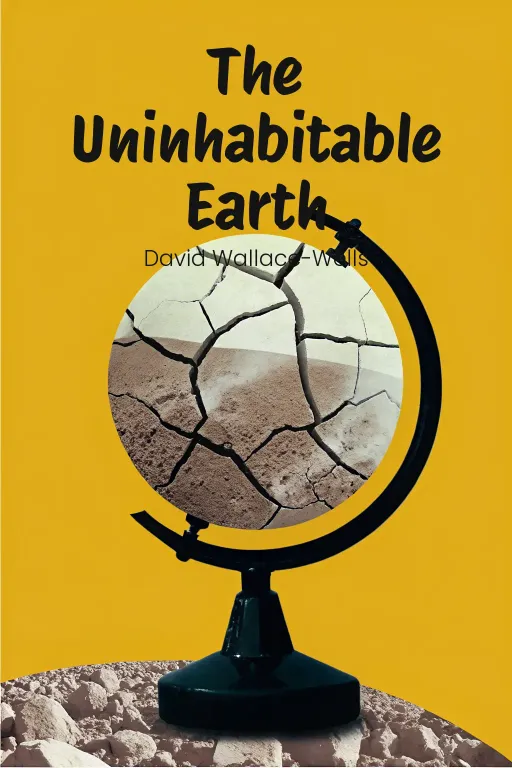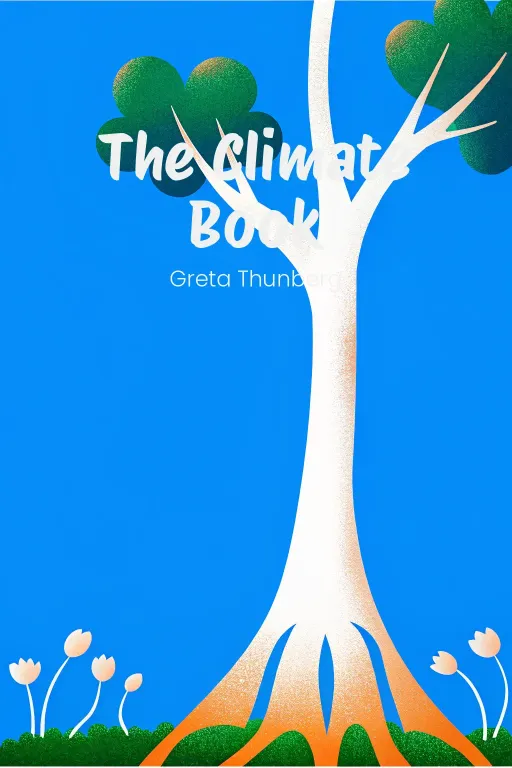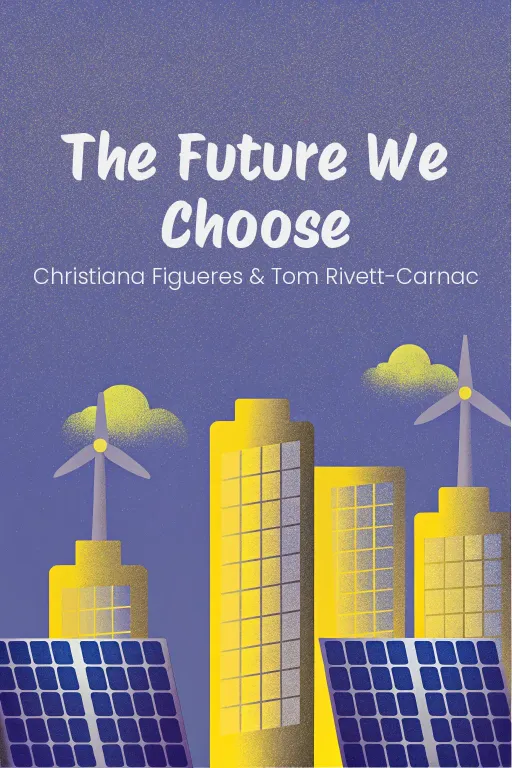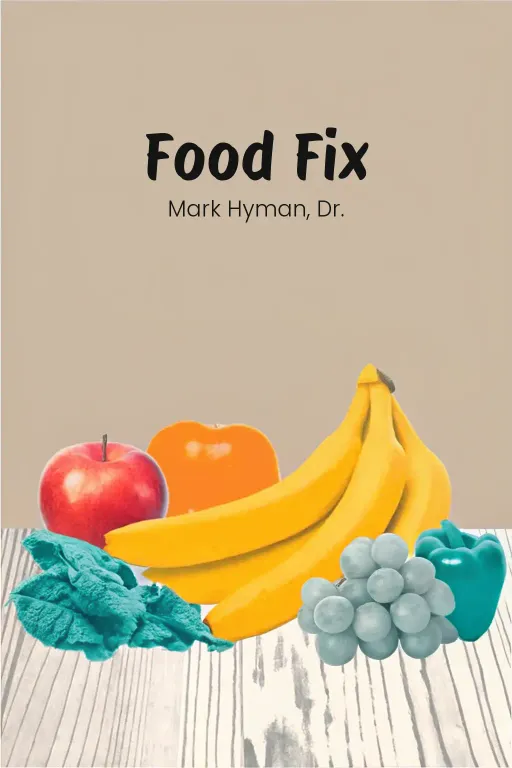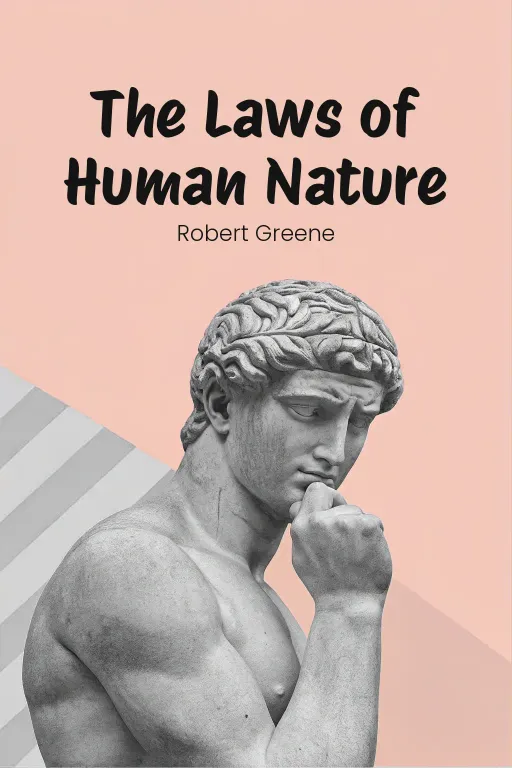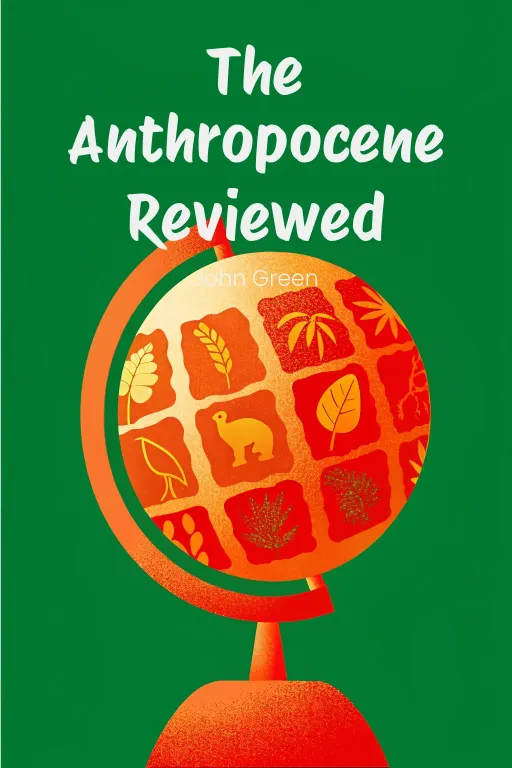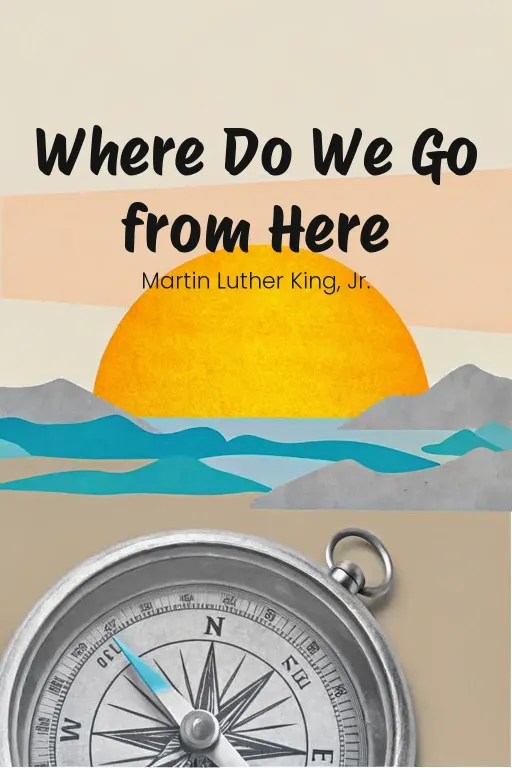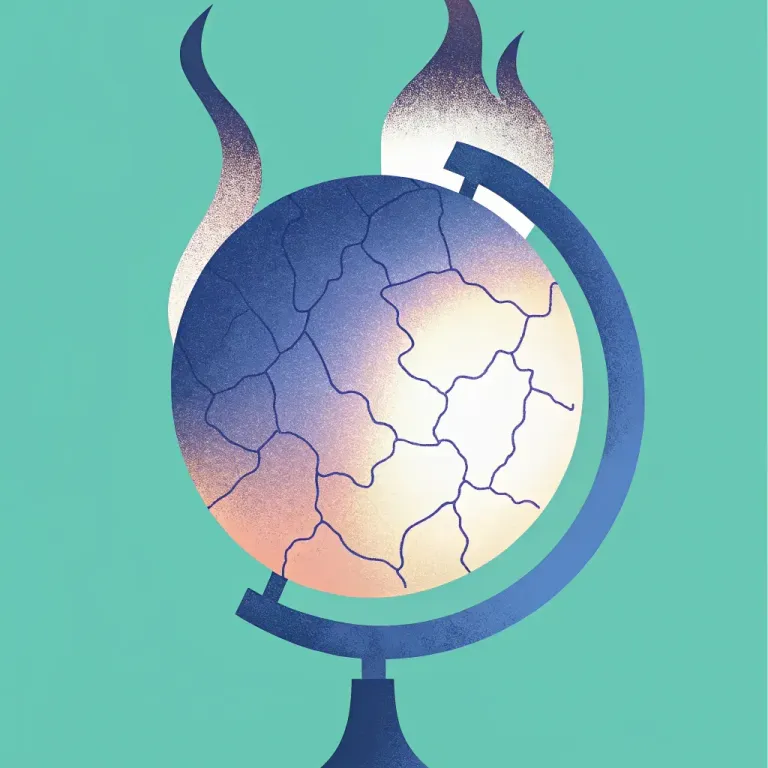
Climate Crisis: Wake-Up Call You Can't Ignore
Podcast by Wired In with Josh and Drew
Life After Warming
Introduction
Part 1
Josh: Hey everyone, welcome! Today we're jumping into a tough topic: climate change. I want you to think about this: What happens when the planet that sustains us can no longer depend on us in return? Drew: Josh, “tough” is putting it mildly, isn't it? We're talking about everything from wildfires and floods to potential food shortages. Honestly, it sounds like a movie plot, but it's actually happening. Josh: Exactly! That's where David Wallace-Wells' book, “The Uninhabitable Earth”, comes in. It really smashes the idea that climate change is some far-off, abstract issue. It's a real wake-up call, laying out how global warming could seriously change... well, everything. Our ecosystems, our health, our economies, even how we live together. Drew: A 'wake-up call'? See, that sounds too gentle. From what I gather, the book's more like the fire alarm's blaring, the building's full of smoke, and we're all debating whether to grab a fire extinguisher or just argue about who started the fire. Josh: <Laughs> I think that's right! What's powerful about this book, though, is it doesn't just paint a picture of the crisis. It forces us to confront some pretty uncomfortable questions. Like, how did we let things get this bad? What can we even do about it now? And how much worse can it get before things actually start improving, if they ever do? Drew: Right, and today we're going to look at this through three lenses. Number one, the ticking clock––because, spoiler alert, this isn't a future problem, it's a current emergency. Then environmental chaos: hurricanes, droughts, a planet fighting back. Finally, and this is the one I think about most, the human cost. What does this all mean for us? Potential mass migrations, financial crises... the stakes are incredibly high. Josh: Absolutely. This isn't just about reciting data or focusing on worst-case scenarios. We're aiming to understand the world we're potentially heading towards, and what actions, if any, we can still take to change course. Ready to dive in? Drew: Let's do it. If we don't talk about this now, then when the heck will we?
The Urgency of Climate Change
Part 2
Josh: So, picking up where we left off, let's “really” look at the climate change impacts that are happening “right now”. We're not talking about future predictions anymore, Drew. This is real, it's relentless, and it's changing everything – mass extinctions, crazy heatwaves, ecosystems collapsing... And these storms? They're not just coming, they're “here”. Drew: Right. And speaking of storms, let's jump into your case study: Hurricane Harvey, in Houston, 2017. They called it a "500,000-year event"! And – spoiler alert – it “really” happened. We're talking almost a million gallons of rainfall “per resident” in Texas. I mean, it's almost absurd, except there was nothing funny about the devastation it caused. Josh: Exactly. Hurricane Harvey wasn't just some freak natural disaster; it was a stark climate disaster. That insane rainfall completely overwhelmed Houston’s infrastructure, turning entire neighborhoods into lakes and displacing thousands. And the crucial point here is that these types of storms are becoming more frequent because of rising global temperatures. Warmer air holds more moisture, so when it rains, it “pours”. Things we thought were impossible are now becoming predictable tragedies. Drew: Predictable, but still "once-in-a-lifetime events" apparently – as if they are not stacking up! And then there's the human cost, right? These aren’t just statistics. We're talking about communities displaced, lives totally upended. You can't just shrug that off. Josh: Absolutely. And the ripple effects go way beyond the immediate area. Consider the socio-economic impact. Harvey caused over $125 billion in damages, making it one of the costliest storms ever in the U.S. Insurance companies struggled, small businesses closed for good, families lost everything. If you multiply that by similar events worldwide, it's clear: the systems we depend on aren't built to handle this level of disruption. Drew: You think “that's” bad? How about a climate disaster and “conflict” cocktail? Take Syria. From 2006 to 2011, a severe drought – thanks to climate change – wiped out agriculture in rural areas. That forced a massive migration into cities that couldn't handle it. Add in existing political tensions, and “boom” – civil unrest turns into one of the most devastating wars of the 21st century. You're saying climate change didn’t fuel that fire? Josh: Oh, definitely. Syria is a perfect example of what happens when environmental collapse amplifies existing social and political issues. Climate change doesn't happen in isolation. It amplifies instability. People lose their homes, their jobs, their farms, and they are forced to move, often to places that are already struggling. That's how you get this domino effect of disasters, from droughts to migrations to full-blown conflict. Drew: Which means it's not just a "weather problem", right? It’s a system-level force that piles crisis upon crisis across borders. But let's be real, not every nation's feeling the burn equally. Some are carrying “way” more of the weight, and – surprise – it's not the nations with private jets and offshore bank accounts. Josh: And that's where you see the “real” unfairness. Marginalized communities, especially in poorer, agricultural countries, are hit the hardest. Farmers are dealing with crop failures from drought. Coastal cities in Bangladesh are sinking because of rising sea levels. Meanwhile, wealthier regions are pumping out the most carbon but often have the resources to protect themselves from the immediate consequences. It's appalling that the ones most responsible for warming the planet are often the least affected by the damages. Drew: And there's the billion-dollar question: Who's footing the bill for all this? Hint: It's not the oil executives. When coastal cities are underwater or drought wipes out an economy, someone has to pay. But does the global system step in to redistribute resources to help out? Not really. It's like watching the rich throw a party and then stick the poor with the cleanup. Josh: And there's another layer of that mess, which is the mental health impact. Climate change isn't just physical and economic; it's emotional too. The uncertainty about the future, watching communities fall apart, that sense of doom… it's mental health quicksand. People everywhere, even those not directly affected, are feeling this pervasive eco-anxiety. It's especially intense among younger generations who are inheriting what feels like a basically uninhabitable world. Drew: Yeah. I read reports that call this "climate grief." People are mourning the loss of species, ecosystems, even a sense of normalcy. It’s like an existential punch to the gut. You don't even have to live in a hurricane-ravaged region to feel that we've crossed a planetary red line. Josh: And yet, there's still this disconnect. Despite all, literal floods, extreme heat, entire species vanishing – some still see it as a distant problem. This deep-rooted psychological bias makes it easy to compartmentalize the crisis. Climate change is seen as something that affects "other" people or "other" places. You've seen that, right? Drew: Totally. Remember the 2011 Australian heatwave? Massive tree diebacks, coral bleaching in the Great Barrier Reef. It was catastrophic, but somehow it didn't shatter the illusion that money or geography makes you immune. Australia, one of the wealthiest countries in the world, got hit right in its tourism industry and agriculture – it lost billions. But people still act like money or location can outrun climate breakdown. Josh: That heatwave should have been a big wake-up call, but a lot of these events fail to connect because people think, "Oh, that's happening far away," or "We can just adapt." But if you keep thinking of climate change as someone else’s problem, you postpone action. That’s why we need to highlight the impacts that people can relate to directly, like public health or the economy. If people don't see the threat to themselves, they aren't going to act. Drew: And let’s not skip over the failures of technological optimism either. We have these big promises about carbon capture or geoengineering, like they're quick fixes. Meanwhile, emissions are still climbing, and climate science keeps shifting the goalposts on what's "acceptable warming." Sooner or later, the magic thinking runs out, and we’re left with… what? Just fires, floods, and no real plan. Josh: Exactly. We need to understand that we can’t put off our response any longer. We're running out of time. Once you've crossed 2°C of warming, you're basically guaranteeing catastrophic outcomes for huge parts of the world. The time to act isn’t tomorrow. It's right now. Every delay just makes the damage worse. Drew: And yet, here we are. The luxury of delay belongs to the privileged, but let's be honest, we're almost out of time. Climate change isn’t asking for permission to escalate. It's already going rogue.
Environmental Disruption on Multiple Fronts
Part 3
Josh: So, having established the urgency, let's dive into the environmental disruptions already happening. We can break it down into extreme weather, rising sea levels, and biodiversity collapse. These aren’t just headlines, they’re interconnected crises destabilizing everything. Drew: The chaos trifecta, got it. Let’s start with extreme weather. Honestly, are we even surprised anymore when "record-breaking" becomes the norm? It feels like hurricanes, heatwaves, and wildfires are now annual reminders stamped with "climate change happened here." Josh: Exactly. But it’s not just about breaking records, it's about breaking infrastructure and lives. Take Hurricane Harvey in 2017. It was classified as a “500,000-year event” and dumped 60 inches of rain in parts of Texas. To put that in perspective, imagine almost a million gallons of rain for every single resident of Texas. It overwhelmed Houston’s infrastructure, swallowing neighborhoods. Over $125 billion in damage, families displaced, and many still haven't recovered. Drew: And we can't forget why storms like Harvey are now the baseline. It's the warmer atmosphere. More heat means more moisture, supercharging these storms, right? We've basically thrown hurricanes into the gym with protein shakes. Josh: That's one way to put it. Plus, the impacts ripple out. Flooded homes and cities turn into fiscal disasters with insurance claims and stalled economies. And infrastructure just isn't designed for this level of deluge. And Harvey is just one example. The 2022 Pakistan floods displaced over 30 million people. It's happening everywhere. Drew: And while we’re busy cooking the planet, heatwaves have also evolved from seasonal annoyances to outright killers. Summer 2018, anyone remember that? Los Angeles hit 108°F, Algeria spiked at a record 124°F. Phew! In some Indian cities, roads were literally melting. The thing is, crops can’t exactly thrive when the soil’s practically on fire. Josh: Heatwaves are a silent disaster. You don’t see the wind and water damage on the news like with hurricanes, but crops failing due to heat devastates livelihoods and triggers food shortages. It's a domino effect – less food drives prices up, hitting vulnerable communities hardest. And you nailed it; the inequity is striking. Drew: Alright, next stop: sea-level rise. This one feels Shakespearean. We’re talking about entire cities surrendering to the ocean. Shanghai, for instance. Can you believe that 24 million people live there, and the city’s just 13 feet above sea level on average? A couple of degrees of global warming, and projections show almost 45 million people could be displaced by 2100. Josh: It’s dire, yes, but Shanghai isn’t alone. Coastal cities worldwide face similar inundation challenges, from Miami to Jakarta. And it’s not just flooded streets. Rising seas salinate farmland, which makes agriculture impossible. It overwhelms sewer systems, causing health crises. The South China Morning Post reported on saltwater intrusion into crop fields around Shanghai, meaning communities can’t farm and are losing their livelihoods. It’s a cascading catastrophe. Drew: And whenever we talk about solutions, everyone jumps to sea walls. Sure, build a wall to hold the water back! Except that costs billions. Richer regions might afford that. But what’s Bangladesh supposed to do when their cities flood? "Relocate?" That's just damage control; it's not a plan. Josh: Exactly. Even when affluent places adapt, it stretches budgets thin. Resources meant for development are redirected to disaster mitigation. And even these "fixes" have limits; you're only delaying the inevitable. It is a classic case of band-aiding symptoms instead of addressing causes. Drew: Right. And if flooded cities weren’t dystopian enough, let’s talk about biodiversity loss. Care to explain why we’re in Earth’s sixth mass extinction event? Because it's not just bad luck for the animals; the whole food web is unraveling, isn’t it? Josh: Biodiversity and ecosystems are the foundation of a sustainable planet. Everything relies on them! But climate disruptions are wiping out species at breakneck speed. Bees, for example, pollinate about 75% of flowering plants and a third of global food crops. They’re disappearing due to pesticides, habitat loss, and, unsurprisingly, climate pressures. If we lose them, human food security takes a direct hit. Drew: Bees, our tiny, overworked saviors. And it's not just land— the oceans are in trouble, too. Have you heard of the reef as a horror story? The Great Barrier Reef? Half of it's apparently gone from coral bleaching events since 2016 alone. This wiped out ecosystems that relied on those reefs. And reefs also buffer coastal areas from storms. So, when they go, nature’s defenses against hurricanes go, too. It’s like yanking bricks from an already crumbling wall. Josh: It gets worse. Ocean biodiversity impacts cascade into human livelihoods, like fishing. Warming waters are pushing species like codfish toward colder regions, uprooting entire fishing industries along North America’s East Coast, for example. And let’s not even get into hybrid species like the "pizzly bear." Drew: Pizzly bears. Part polar bear, part grizzly bear. Almost sounds cute, until you realize it’s a giant flashing sign of ecological breakdown. When species mix like that, it's a signal we’ve pushed environments so far out of balance the old systems can’t cope anymore. Josh: That imbalance is at the heart of myriad disruptions. Once ecosystems unravel, they take human livelihoods down with them. And the sick irony is, humans sparked it all—deforestation, emissions, over-exploitation, all of which weaken nature’s resilience, turning it into a precarious domino set where every collapse accelerates the next. Drew: And we can’t ignore the cumulative weight of it all – sea levels rise, weather intensifies, ecosystems collapse. It's not one crisis, it’s all of these feeding into each other, creating a feedback loop so aggressive patching one hole doesn’t stop the boat from sinking. Josh: Exactly. And that feedback loop undermines any sense of control we think we have. Every disrupted ecosystem weakens the planet’s ability to absorb emissions or regulate temperatures. We’re falling into a systemic collapse layered over systemic collapse. Drew: So, what’s the grand takeaway here? Climate change isn’t just an environmental crisis; it’s something much deeper. It’s global disruption, fracturing life as we know it, with no signs of respect for borders or budgets. The lesson is painfully obvious – fixing this isn’t optional.
Human and Societal Implications
Part 4
Josh: Now that we've looked at the scope of environmental damage, let's dive into how these changes directly affect our health and societies. It's so important to realize that climate change isn’t just an environmental issue; it “really” amplifies human suffering, systemic inequalities, and economic vulnerabilities. Drew: Exactly. It's like climate change is infiltrating every aspect of our lives. It's not just about the planet falling apart; it's taking humanity down with it, layer by layer. So, what's the first domino to fall here? Josh: Definitely health is the first domino. Climate change is already impacting both our physical and mental well-being in ways that seemed unimaginable just a few decades ago. Take air pollution, for instance. The World Health Organization estimates it causes about seven million premature deaths worldwide annually. That's a staggering number! Seven million people dying early because of fossil fuel emissions polluting our cities. And who's most affected? Often marginalized communities living near highways, factories, or industrial areas. Drew: So, it's not just a matter of coughing a bit more, is it? We’re talking about respiratory illnesses, cardiovascular problems – things that overwhelm healthcare systems and send costs through the roof. It's like cities are slowly suffocating their most vulnerable populations with every puff of exhaust. Josh: Precisely. And that's just the beginning. We're also seeing the spread of vector-borne diseases. Rising temperatures enable disease vectors, like mosquitoes, to thrive in previously unsuitable areas. Malaria and dengue fever are now appearing at higher altitudes in East Africa and in new areas of Europe. The CDC estimates that by 2030, up to 3.6 billion additional people could be at risk of malaria. That's over a third of the global population, Drew! Drew: Are you serious? Climate change is turning hordes of mosquitoes into a public health crisis? That sounds like something out of a horror movie. Though, honestly, I'm not entirely surprised. Those little bloodsuckers have been getting away with literal murder for centuries. Josh: Well, it's definitely no laughing matter, because many regions' healthcare systems just aren't prepared for this sudden influx of disease. And beyond physical health, there's a significant psychological impact too. Climate disasters like hurricanes and wildfires take a huge mental toll. Research after Hurricane Katrina showed a surge in PTSD, anxiety, and depression among survivors. Even the term “climate grief” is becoming common, reflecting this widespread despair and anxiety related to environmental degradation. Drew: It's mind-blowing, isn't it? People are actually wrestling with intense emotions about a climate they can't control – grief, anger, despair. And let's not forget the anthrax incident in Siberia with the reindeer carcass. Remember that? In 2016, thawing permafrost released anthrax bacteria that had been buried for decades. The thought that ancient pathogens might re-emerge sounds like a Netflix apocalypse special. Josh: That case in Siberia was terrifying and “really” highlighted how climate change is destabilizing even systems we thought were permanently frozen – literally. But, let's move on to another human cost of this crisis: climate-induced migration. The World Bank projects that by 2050, climate change could displace over 140 million people in South Asia, Latin America, and sub-Saharan Africa. And that's just internal migration. The numbers could be much higher when we factor in cross-border displacement. Drew: That's just… staggering. Tens of millions of people displaced not by war or politics, but because their homes, farmland, and freshwater are disappearing. It's like musical chairs on a global scale, but no one has enough chairs when the music stops. Josh: A perfect example is Bangladesh. It's incredibly vulnerable to rising sea levels. Even now, tens of thousands are displaced each year as rivers encroach on farming villages. On the other hand, countries like the Netherlands have the resources to invest in top-notch flood defences, like massive dike systems. The contrast is stark – one nation struggles to survive while another remains relatively safe. Drew: And you just know the wealthy countries are going to build walls, not bridges, as they brace themselves for a flood – not of water, but of people. That's the ultimate hypocrisy. Wealthy nations pump out the most carbon, and then act surprised when poorer nations come knocking after their land becomes uninhabitable. Josh: Exactly! That’s where the real inequity lies. The wealthiest 10% of income earners contribute nearly half of global emissions, while the poorest 50% contribute just 10%. Yet, it's the poorest regions that suffer the worst climate impacts and have the least financial means to adapt. Though, even wealthier nations aren't immune. When Australia experienced its 2011 heatwave, record temperatures caused agricultural losses, coral bleaching, and billions in economic damage. Yet, they repealed their carbon tax the following year – short-sighted symbolism at its finest. Drew: You could say that's redefining “short-term thinking.” And can we talk about the financial implications? Climate change is reducing global GDP and increasing poverty, particularly in regions that rely heavily on agriculture. South Asia, for instance, is facing declining crop yields due to erratic rainfall and extreme heat. We could be looking at 800 million people being pushed into extreme poverty. Josh: Totally. It's a devastating economic ripple effect. According to the work of Solomon Hsiang and Marshall Burke, every degree Celsius increase roughly corresponds to a 1% reduction in economic growth in warmer regions. Now, imagine multiplying those degrees. A projected 2°C increase could lead to a 23% drop in per capita income by 2100. That's worse than the Great Depression! This kind of economic instability doesn’t just affect grocery prices; it undermines global supply chains, trade, and even governance. Drew: And while some people claim that a few nations might actually benefit – longer growing seasons for Canada, milder winters for Russia – those supposed "gains" are meaningless if the rest of the global economy is collapsing. You can't exactly sip champagne on top of a sinking ship. Josh: Precisely. The consequences aren’t limited to any one area. Economies depend on stability – stable labor, resources, and ecosystems. Climate change unravels all of that. The key takeaway here is that addressing climate change isn't just altruistic; it’s about our very survival. And tackling inequalities along the way is the only way forward.
Conclusion
Part 5
Josh: Okay, let's quickly recap our discussion today. We dove deep into the various crises arising from climate change, stressing the urgency and environmental disasters, not to mention the serious consequences for humanity. Think hurricanes, heatwaves, economic instability, mass migrations... the message is loud and clear: these aren't random incidents; they're interconnected signs pointing to a rapidly worsening global emergency. Drew: Exactly. It's not just about rising temperatures on the planet; it’s about seeing our political systems start to crack, economies starting to fail, and our societies becoming more unstable. Whether it's cities drowning, biodiversity disappearing, or even the rise of mental health problems, we're seeing it all unfold right before our eyes. Heads up, nobody gets a free pass from this. Josh: Precisely. But here’s the thing that’s also really important: Every crisis we've talked about, as overwhelming and systemic as it all seems, also shows us why action is so critical and shows the possibilities from taking action. It's more than just surviving; it's about seriously rethinking how we live, how we consume, and how we work together globally. Thinking that climate action is optional is, I think, the most dangerous delusion we can have right now. Drew: So, listeners, here's your key takeaway. Yes, the size of the problem is intimidating, but giving up just isn't an option we have. Whether it means pushing for big systemic changes, demanding accountability from businesses, or fighting for fairness in climate policies, we always have choices. Time is definitely running out, but we're not totally powerless here. Josh: An uninhabitable Earth doesn’t have to be our future—we can prevent it. It’s really up to us to take a hard look at the systems that got us into this mess, to challenge the unfairness that this crisis has exposed, and to start building something much better before it’s “really” too late. Drew: So, what’s it gonna be? Are we going to sleepwalk into collapse, or are we going to actively design a better future? The next steps are ours to decide.
